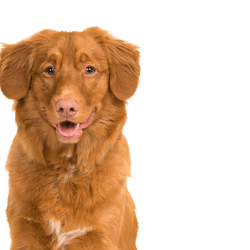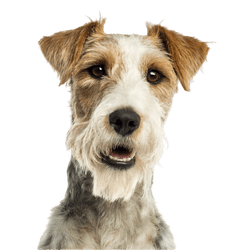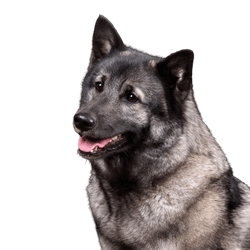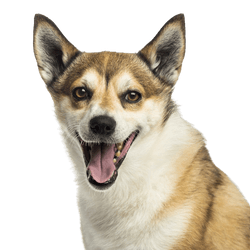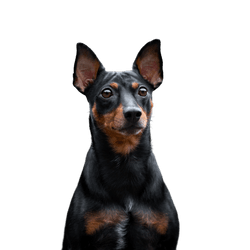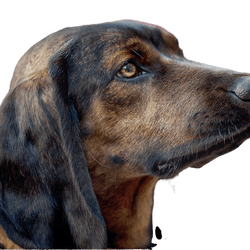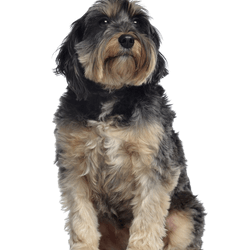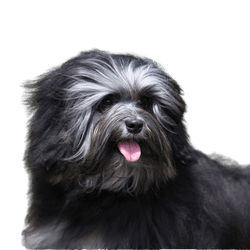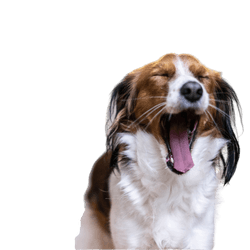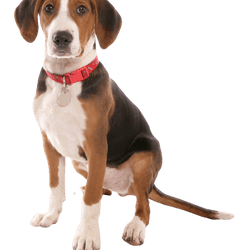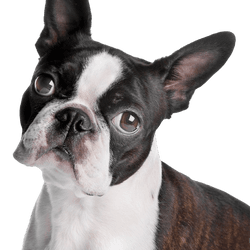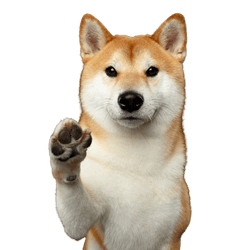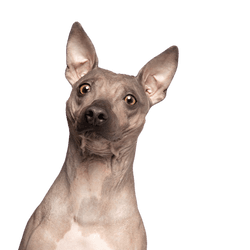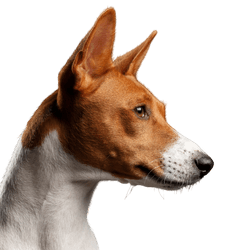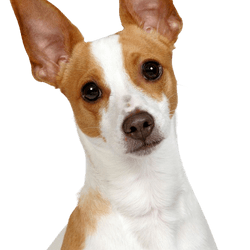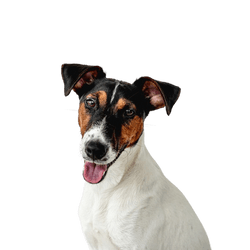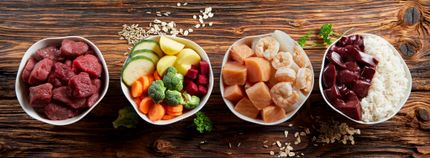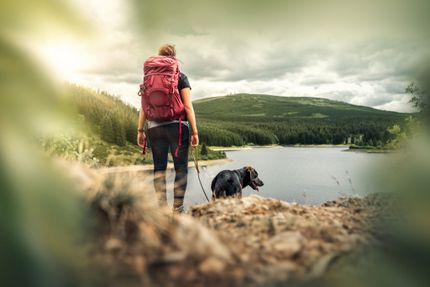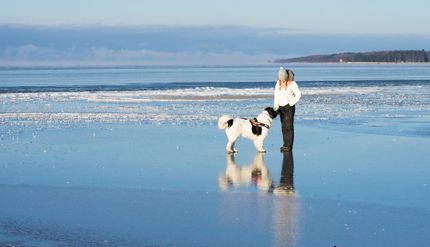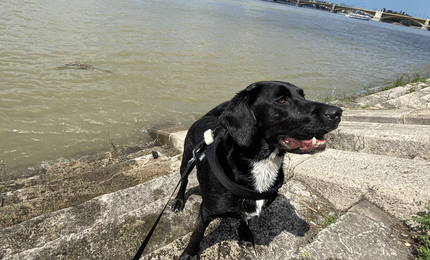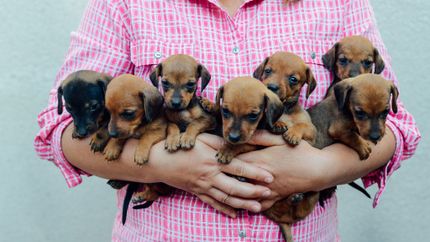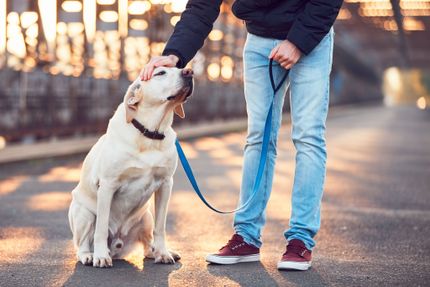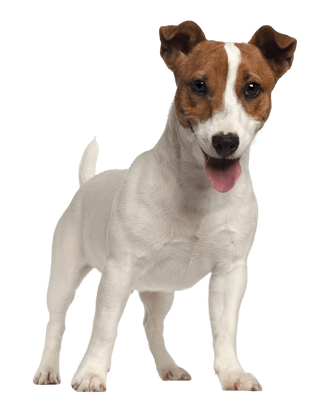
Jack Russell Terrier Breed description: Character & Co
Jack Russell Terrier
Facts & Origin
The Jack Russell Terrier is especially popular with horse lovers. There is hardly a horse stable, where there is not at least one specimen of this dog breed represented. This lively four-legged friend is suitable as a family dog. If you want to buy a Jack Russell Terrier puppy, you should be aware of a few things, however. This lovely furry friend is no dog for first-time owners.
What is the origin of the Jack Russell Terrier?
The Jack Russell Terrier has been bred in Great Britain for over 150 years. The founder of this Terrier breed was Reverend John (Jack) Russell. The ambitious hunter bred this new type of Terrier with his bitch Trump. The ancestress of the Jack Russell Terrier was bought by the Reverend around 1819 in Oxford. The breed received the name of its "progenitor".
Jack Russells bred in England can reach a shoulder height of 38 cm. The slightly smaller specimens are identical in appearance to the larger editions. They are not short-legged dogs. The breeding goal was to end up with a hunting dog specifically for fox hunting. Because of their size, they could follow foxes into their den.
From about 1880, descendants of the Jack Russell Terrier were imported to Australia. There they were also used for fox hunting. The Australian foxes mostly used a rabbit hole as shelter. The hunting dog had to be able to enter this narrow burrow without putting themselves in danger. Therefore, the descendants that followed were only allowed to have a withers-height of 30 cm at most.
In 1972, the Jack Russell Terrier Club of Australia was founded. In 1991, this type of Jack Russell Terrier was recognised as a pedigree dog by the Australian National Kennel Council. The FCI also recognised this pedigree dog in 2000. It was documented in Group 3 (Terriers), Section 2 (Downhill Terriers), Standard No. 345. In Great Britain, the FCI standard is still not recognised by the Kennel Club.
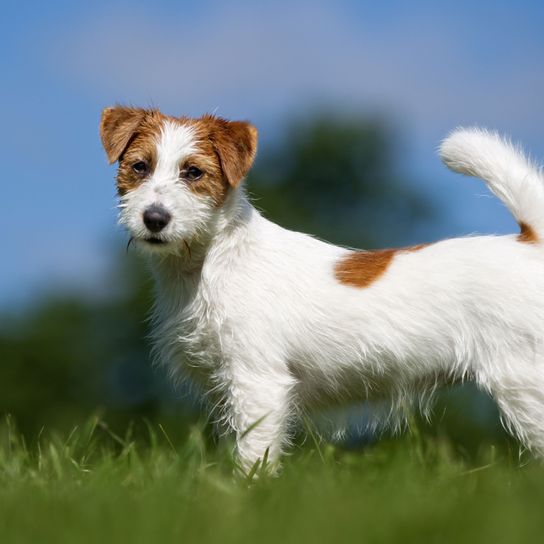
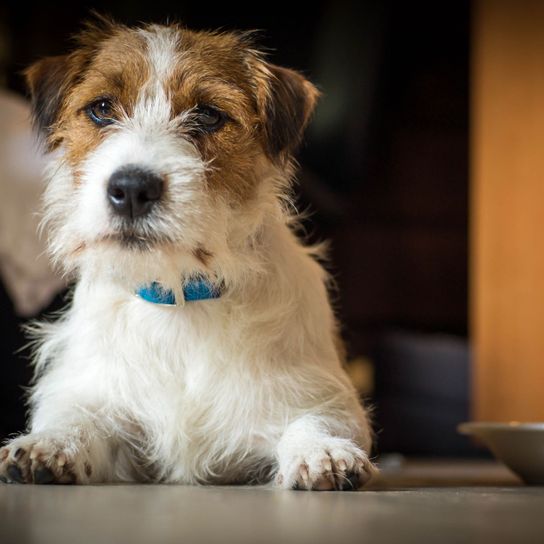
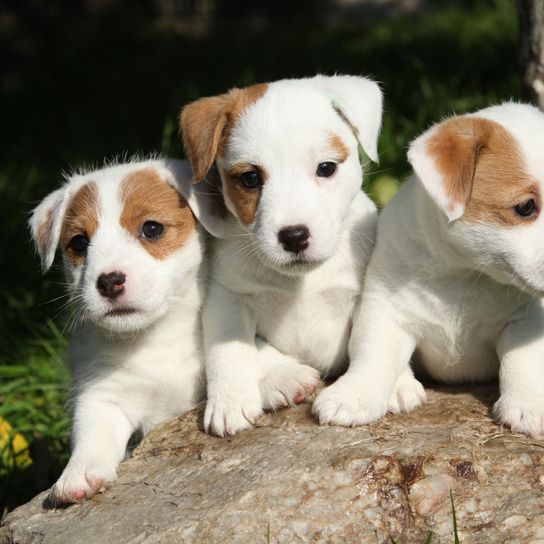
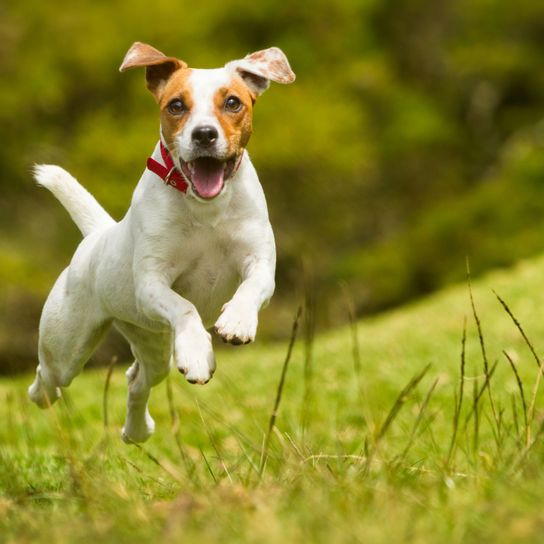
| Alternate Name | Russell Terrier, Jack Russell |
| Origin | England |
| Life expectancy | 13 - 16 years |
| Care requirements | low-maintenance |
| Activity level | high |
| FCI group | Small sized Terriers |
| AKC group | Terrier Group |
| KC group | not recognised |
Jack Russell Terrier mixes
Attitude, character and temperament of the breed
A Jack Russell Terrier is an athlete. You should definitely give them sufficient physical and mental stimulation. Don't be irritated by their height. They are:
- stubborn
- strong-willed
- fearless
- intelligent
- energetic
- athletic
- loud
- cheerful
- lively
The biggest problem is their innate hunting instinct. You can get a good grip on that with consistent training. They will question the role of the pack leader. In this area you are dependent on your dog experience and help from a dog trainer. A Jack Russell will defend you, your family and your property. It is the ideal playmate for older children. It never gets tired and is can be described as robust.
There are many ways put your new four-legged friend's energy to good use. You should lay the foundations for your future life together with a Jack Russell Terrier puppy early on. This intelligent and hard-working four-legged friend loves to learn tricks and execute them.
Numerous sports are suitable for them. Through regular training their endurance and conditioning will get better and better. Some options are:
- Dog sports (with different speed and difficulty levels)
- Riding companion dog
- Cycling
- Jogging
A disadvantage is that they are "ball junkies" and they are mad about digging.
Character
Usage
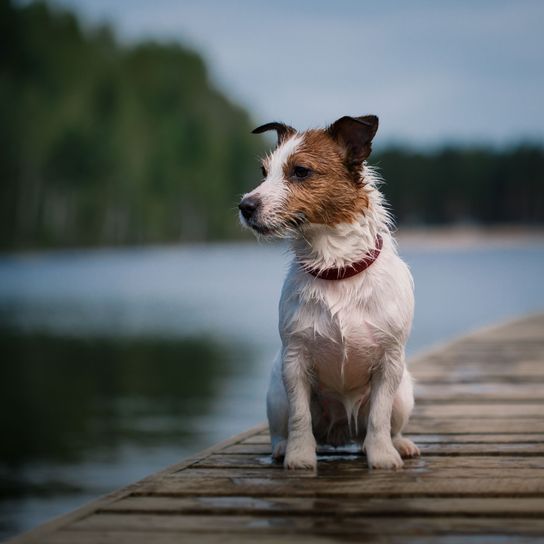
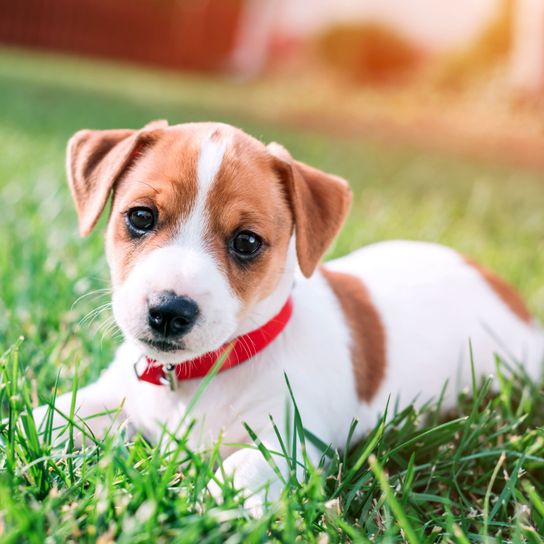
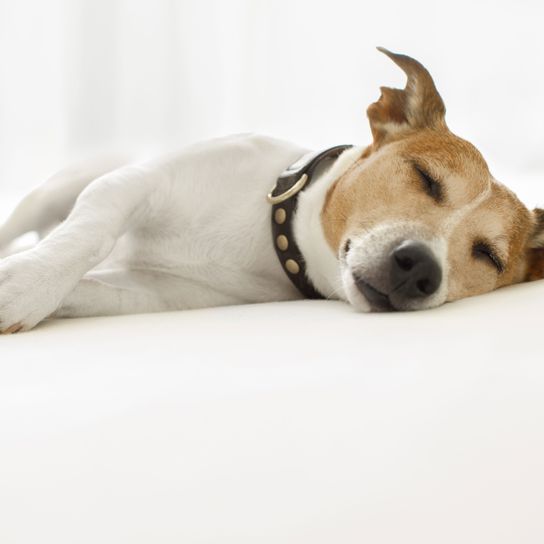
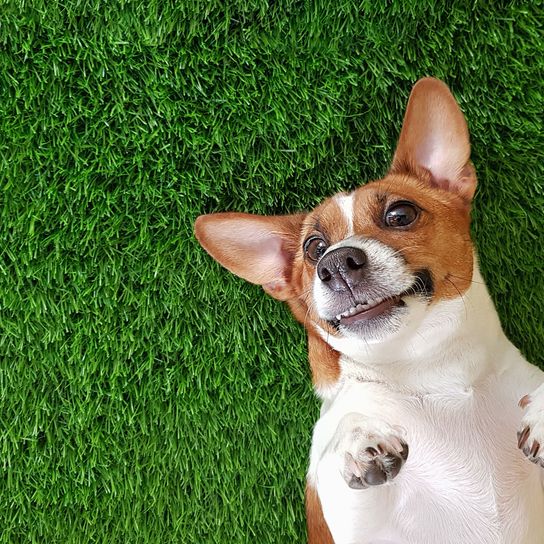

Health and breeding information
What are typical diseases of a Jack Russell Terrier?
The Jack Russell Terrier can be linked to suffer from the following hereditary diseases
- Ataxia (impaired movement coordination)
- Myelopathy (spinal cord disease).
These two diseases are common in Terriers and develop during the first months of their lives.
Furthermore the Jack Russell Terrier can develop
- Atopy (hypersensitivity to various substances)
- Legg-Calvé-Perthes Disease (Growth Disease)
- Dermatophytosis (fungal infection linked with a weakened immune system)
- eye diseases (possible genetic predisposition).
What should be considered with Jack Russell Terrier breeding?
When buying a puppy from a Jack Russell breeding you have to distinguish between English and Australian breeding. In the 19th century, the Jack Russell breed in Australia did not pay attention to possible consequences of inbreeding. With descendants of this breeding line, hereditary diseases can potentially occur more frequently.


What are the breed characteristics of the Jack Russell Terrier?
This strong little dog has a rectangular build (longer than high). Their head is well-proportioned to their body. The Terrier looks fearlessly into the world with its head held high its almond-shaped, dark eyes. Their triangular ears are folded downwards.
The athletic body with its straight back and well-muscled loin and hindquarters gives this four-legged friend an enormous jumping ability. They carry their tail upwards when they are excited or in action. When resting they let it hang down.
According to the German animal protection law the tail may be docked. In Germany, this is only allowed however if the Jack Russell Terrier is used as a hunting dog.
Appearance and coat of the Jack Russell Terrier
The Jack Russell Terrier makes a friendly and bright impression. Their short and weatherproof coat with its light colouring emphasises this even more. Their intelligent look eyes will "wrap" every dog lover around their finger.
The base colour of their coat is white. Their coat is either short and smooth or rough-haired. Markings are distributed in different amounts on their head and on the body. These can be black, brown, gold, red or tan. The coat care is generally uncomplicated. Regular brushing of your furry friend is completely sufficient when they have short and smooth fur. Rough-haired specimens should get a trim from time to time.
Often, the coloured markings are mainly on the head and the rest of the body is almost white with small isolated spots.
What is the average size of a Jack Russell Terrier?
They reach a shoulder height of 25 to 38 cm. Males and bitches are the same size.
How much does a Jack Russell Terrier weigh?
The ideal body weight lies between 5 and 8 kg. This depends on the body size. A Jack Russell Terrier with a shoulder height of 25 cm should weigh around 5 kg.
What is the average age of a Jack Russell Terrier?
This pedigree dog has a life expectancy of 13 to 16 years. This average age is not unusual for Terrier species. Sometimes it is even possible that this type of dog reaches an age of 18 years.
| Fur length | short |
| Fur | rough-haired |
| Ear shape | Tilt-ear |
| Tail | lang |
| Anatomy | sporty |
| Size ♀ | 25 - 38 cm |
| Weight ♀ | 6 - 8 kg |
| Size ♂ | 25 - 38 cm |
| Weight ♂ | 6 - 9 kg |
| Suitable For | - |
Colors
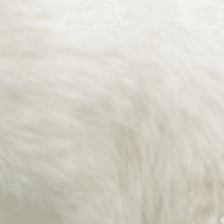
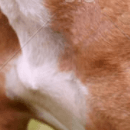
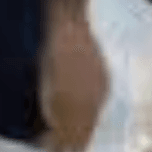
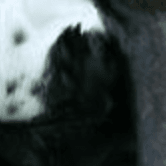



Known Diseases
Ataxia
Ataxia (from Greek ἀταξία ataxia 'disorder' 'irregularity') is a generic term in medicine for various disorders of movement coordination. Ataxia can occur even when there is no paralysis (paresis), that is, when there is normal muscle strength.
Atopy
Canine atopic dermatitis or environmental allergy is characterized by itching with scratching, biting, and rubbing of the face, paws, and belly
Dermatophytosis
Dermatophytosis (synonym dermatophytosis, from ancient Greek τὸ δέρμα derma, German 'skin' and ancient Greek φυτόν phyton, German 'plant') or tinea (Latin for 'woodworm', 'moth') is a skin fungal disease caused by specific fungi (dermatophytes).
extreme whiteness
May be associated with some other diseases.
Cataract
Cataracts are still one of the most common causes of blindness, even in dogs.
Legg-Calve-Perthes
Legg-Calvé-Perthes disease (aseptic femoral head necrosis) is a growth disorder of the femoral head.
Dislocations
Lenticular and patella luxation occur in some breeds and affect the eye.
Myelopathy
Degenerative myelopathies of dogs are a series of slowly progressing neurological diseases associated with destruction of the spinal cord. These diseases are associated with slowly progressive movement disorders of the hindquarters.
Numbness
Often occurs in old age.
FAQ
-
Yes, the Jack Russell Terrier is a good family dog. Especially if the family and the children are very active and like to move a lot.
-
You can get a Jack Russell Terrier puppy from 1200 Euro.
-
A Jack Russell Terrier is a very agile and active dog, so when a puppy moves in with you, you should make sure that he has enough intelligence toys to keep him constantly busy. Besides the classic doggie gear for puppies things, you will also need toys, a Kong and other things to keep him busy.
Other medium dogs
Useful Articles
You can find articles that might interest you in the dogbible blog to match your favorite breed.
Visit our magazineto stay up to date on dog trends.
To find out more, view our Privacy Policy
Find here the breed that suits you and find out what character traits it has. Here you can also learn more about the origin, size and weight of your favorite breeds.
Matching your favorite breed, you'll find articles that might interest you on the dogbible dog blog.
Dog and zodiac sign - which breed suits your zodiac sign?
Vegan dog food - polarizing topic
Skiing with a dog - unforgettable moments in the snow
Ear infection in dogs - 5 tips and prevention of inflammation





